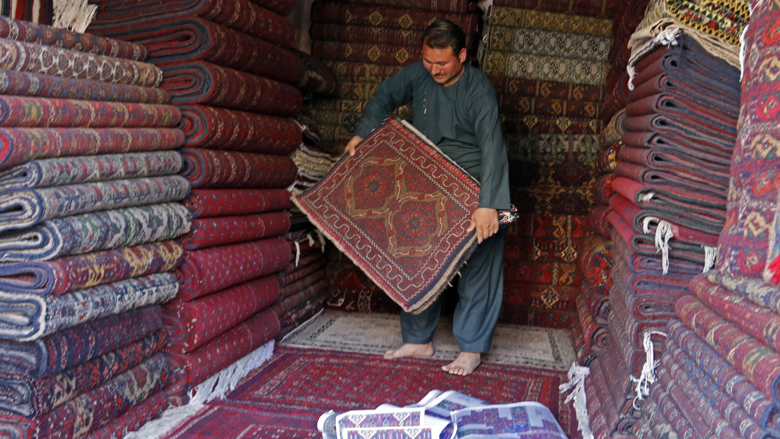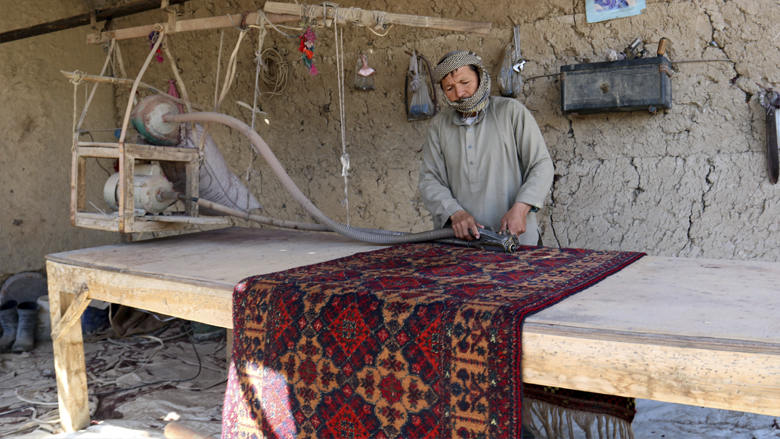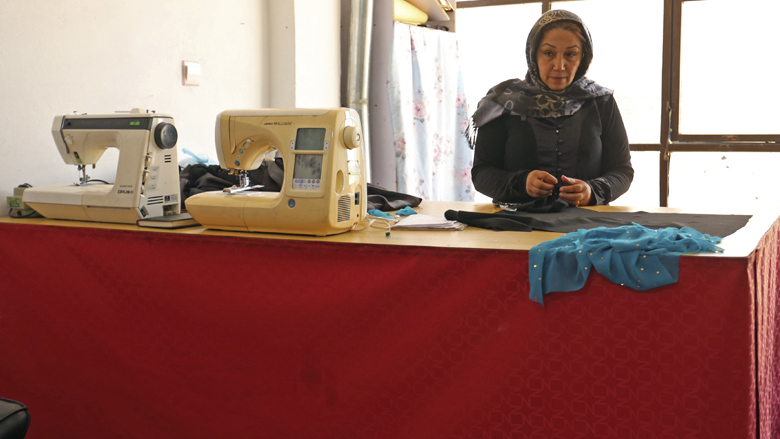MAZAR-E-SHARIF, Balkh Province – On a warm, early morning, Fazluddin is sitting in his store examining new carpet designs to decide which ones to approve for weaving. The store is filled with neatly stacked colorful carpets. He puts aside the preferred designs and asks his father’s opinion.
Later, Fazluddin explains to a customer: “All our carpets are hand woven by Afghans from Afghan wool. The quality is great.” Fazluddin entered the family business as a young man. His 56-year-old father inherited the business from his forefathers. For more than 20 years, his father worked to keep the business going, but did not have enough customers or a strategy to resolve their marketing and financial management issues.
“Our business was small,” recalls Fazluddin, “we had only a few customers from Kabul and some provinces of Afghanistan and we did not know how to expand our work.” However, their business transformed after receiving support from the Afghanistan Rural Enterprise Development Program (AREDP) in 2011. “AREDP support helped us expand our carpet store into a company,” he says.
Fazluddin and his father now run their own company in Balkh province, in northern Afghanistan. Over 300 people work in the company—a significant increase to the 50 people they employed previously. In supporting established enterprises in the cities, such as Fazluddin’s, AREDP, which closed in June 2018, helped ensure employment opportunities in the rural areas. “Helping us means helping the farmers and people living in rural areas, because they are the people who weave the carpets for us,” Fazluddin points out.
Through AREDP, Fazluddin participated in over 10 national and international exhibitions in Balkh, Kabul, and India. “We participated in exhibitions in India three times, where we found new customers. Now, we send our carpets to countries like India and Turkey in addition to the local market. Thanks God! Our work is going well,” says Fazluddin, who is working to expand the business further.
He and his father also received training in accounting, marketing, business management, and health and environment through AREDP. The training enabled Fazluddin to create and organize the company’s financial system, allowing him to maintain a proper track of cash flow and income and expenditures. The training also enabled him to develop business promotion tools, such as business cards, brochures, and posters.
AREDP was a program of the Ministry of Rural Rehabilitation and Development (MRRD). It aimed to increase income and sustainable employment opportunities for men and women through supported rural enterprises. The program received funding support from the Afghanistan Reconstruction Trust Fund (ARTF), managed by the World Bank on behalf of 34 donors, and the International Development Association (IDA), the World Bank Group’s fund for the poorest countries.
Among other activities, (65 percent managed by women) and 800 (15 percent female) small and medium enterprises (SMEs) that were selected for their potential as key drivers of rural employment and income generation.



